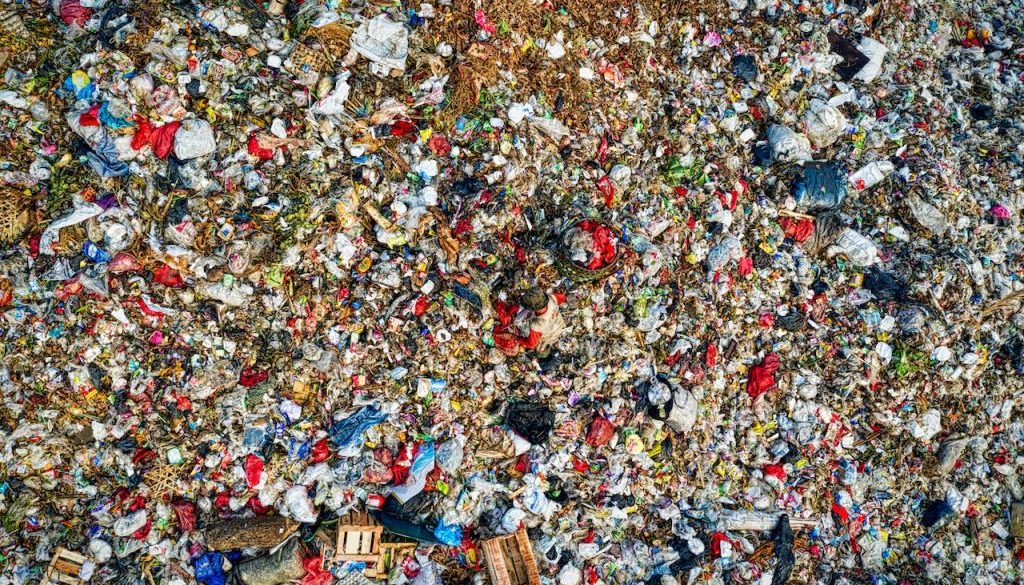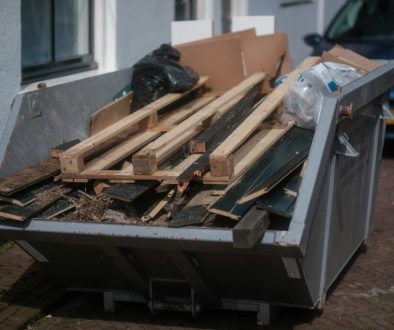Illegal waste dumping, also known as fly-tipping, has become an alarming issue in the UK in recent years, with a significant increase in the number of cases reported. Fly-tipping not only poses severe threats to the environment and public health, but it also incurs substantial costs for local authorities and private landowners responsible for cleaning up the dumped rubbish.
This post delves into the extent of the problem, the consequences of illegal waste dumping, and the efforts being made to combat this environmental crime.
The Scale of the Problem
According to the Department for Environment, Food and Rural Affairs (DEFRA), there were over one million reported cases of fly-tipping in England alone between 2018 and 2019, an increase of 8% compared to the previous year. This figure only accounts for incidents on public land, so the actual number of cases is likely much higher.
The types of dumped waste can range from household rubbish, such as furniture and electrical appliances, to hazardous materials, like asbestos and chemicals. In many cases, the waste is dumped in rural areas, on private land, or in public spaces such as parks and alleyways, causing significant disruption to local communities and the environment.
Consequences of Illegal Waste Dumping
Fly-tipping has a myriad of harmful effects on the environment and public health. Firstly, it contributes to pollution, as hazardous materials can contaminate soil and water sources. This can result in local wildlife poisoning while also affecting the quality of crops grown in contaminated areas.
Additionally, illegal waste dumping creates a breeding ground for pests and diseases, posing human and animal health risks. Rotting waste attracts rodents and insects, which can spread diseases to humans and livestock.
Moreover, the financial burden of cleaning up fly-tipped waste falls upon taxpayers, with local authorities spending an estimated £58 million on clearance costs between 2018 and 2019. Private landowners also face significant expenses, as they are often liable for removing rubbish dumped on their property.
Efforts to Combat Illegal Waste Dumping
To address the issue of fly-tipping, the UK Government has been implementing stronger penalties and enforcement measures. In 2016, the maximum fine for fly-tipping was increased from £50,000 to an unlimited amount, with potential prison sentences of up to five years. Moreover, local councils have been granted the power to issue fixed penalty notices of up to £400 for small-scale offences.
However, despite these stricter penalties, the problem persists. Many argue that more needs to be done to prevent illegal dumping in the first place, such as improving waste disposal infrastructure and raising awareness among the public about the consequences of fly-tipping.
One initiative that aims to tackle the issue is the “Right Waste, Right Place” campaign, which provides information and guidance to businesses and individuals on how to dispose of rubbish legally and responsibly. The campaign emphasises the importance of using licensed waste carriers and disposing of rubbish at authorised sites.
Furthermore, local authorities and organisations are increasingly utilising technology, such as surveillance cameras and GPS tracking devices, to monitor fly-tipping hotspots and catch offenders. Public vigilance is also crucial in this fight, as local communities can report incidents to their local council or through the Environment Agency’s incident hotline.
The Role of Businesses
As waste producers, businesses have several legal and moral obligations to ensure proper waste disposal:
1. Conduct Thorough Checks on Waste Carriers
Businesses must verify that their waste carriers are legitimate and hold the necessary licenses to transport and dispose of rubbish. This can help prevent fly-tipping by ensuring that authorised carriers properly handle and dispose of rubbish.
2. Maintain Accurate Records
Detailed records of waste disposal transactions should also be kept, including the waste carrier’s details, the type and quantity of rubbish, and the disposal site’s location. The documentation can help track and trace waste and provide valuable evidence in case of fly-tipping incidents.
3. Comply with Waste Regulations
Businesses must adhere to all relevant waste regulations, including segregating waste according to type, using appropriate containers, and reporting any hazardous waste.
Promoting Sustainable Waste Management Practices
Aside from adhering to legal duties, companies can also contribute to the fight by implementing sustainable waste management practices, such as:
1. Waste Reduction
One of the primary ways businesses can contribute to the fight against fly-tipping is by reducing the amount of rubbish they produce. This can be achieved through various strategies, including:
- Implementing lean manufacturing principles to minimise waste generated during production.
- Adopting a circular economy approach, where products and materials are designed for reuse, repair, and recycling.
- Encouraging employees to adopt waste reduction practices, such as using reusable containers, reducing paper use, and turning off equipment when not used.
2. Recycling and Segregation
Organisations should implement proper recycling systems and encourage waste segregation at the source. They can reduce the amount of rubbish that ends up in landfills and illegal dumping sites. Some measures businesses can take include:
- Setting up designated recycling bins for different types of waste, such as paper, plastics, and metals.
- Providing employees with training on proper segregation and recycling procedures.
- Partnering with certified recycling facilities to ensure that recyclable materials are processed correctly.
3. Responsible Disposal
In addition to recycling, businesses should explore other responsible waste disposal options, such as composting organic waste or donating usable items to charities. By doing so, they can help divert rubbish from illegal dumping sites and landfills.
4. Raising Awareness
Corporations can play a vital role in raising awareness about the importance of sustainable waste management and the dangers of fly-tipping among their employees, customers, and the wider community.
Using their vast influence, they can organise educational workshops, participate in community clean-up events, and use their marketing platforms to promote eco-friendly waste disposal practices.
The Role of the Public
The public is also responsible for ensuring that their rubbish is disposed of legally and responsibly using licensed carriers and recycling facilities, as well as being aware of the disposal guidelines in their local area.
1. Reporting Instances of Fly-Tipping
One of the most effective ways the public can help combat illegal waste dumping is by reporting instances of fly-tipping to their local council. This enables enforcement agencies to promptly investigate the matter and take necessary action, such as removing the rubbish, identifying the offenders, and, if possible, prosecuting them.
Many local councils have dedicated helplines or online reporting systems for residents to report fly-tipping incidents. To report instances of fly-tipping, residents should provide as much information as possible, such as the location, type and size of waste, and any potential evidence like photographs or vehicle registration numbers.
2. Ensuring Responsible Waste Disposal
As individuals, we are responsible for ensuring that our waste is disposed of legally and responsibly. This includes following waste disposal guidelines set by local councils or waste management authorities.
Be aware of the appropriate disposal methods for different types of waste, such as household, garden, or hazardous materials, and use the designated facilities provided for each. Additionally, make sure to separate recyclable materials and utilise recycling facilities or curbside collection services whenever available.
3. Hire a Skip
When hiring a skip to collect and dispose of your waste, verify that the skip providers are legally licensed to operate. Employing a licensed carrier can secure that your rubbish is disposed of responsibly and combat illegal waste dumping.
Before choosing a skip provider, ask for their license number and check it against the database maintained by the environmental regulator in your region, such as the Environment Agency in England or the Scottish Environment Protection Agency (SEPA) in Scotland.
4. Educating Others and Raising Awareness
Another important role the public can play in stopping illegal waste dumping is by educating others and raising awareness about the issue. Share information about the dangers of fly-tipping and the importance of responsible waste disposal with friends, family, and neighbours.
Encourage others to report illegal dumping and use licensed waste carriers. In addition, participating in local cleanup events or organising one in your community can keep your neighbourhood clean and free of fly-tipped rubbish.
Conclusion
Illegal waste dumping is a significant issue in the UK, with disastrous environmental and public health consequences. It incurs considerable costs for local authorities and private landowners responsible for cleaning up the rubbish.
While the UK government has implemented stricter penalties and enforcement measures to combat the issue, it’s still insufficient to prevent illegal dumping. Businesses and individuals have an essential role in implementing sustainable waste management practices and raising awareness about the dangers of fly-tipping. Through collaborative efforts, we can combat this environmental crime and protect our environment and public health for future generations.
Do you need to hire a skip in Cheshire? Enviro Skip Hire can pick up and dispose of your rubbish correctly. We are a family-run skip hire and an aggregate company servicing providing cost-effective, professional and reliable service to domestic and commercial customers.
We make sure that 99% of your waste is recycled. We also offer same-day deliveries for those in a hurry. What are you waiting for? Choose a skip now!




